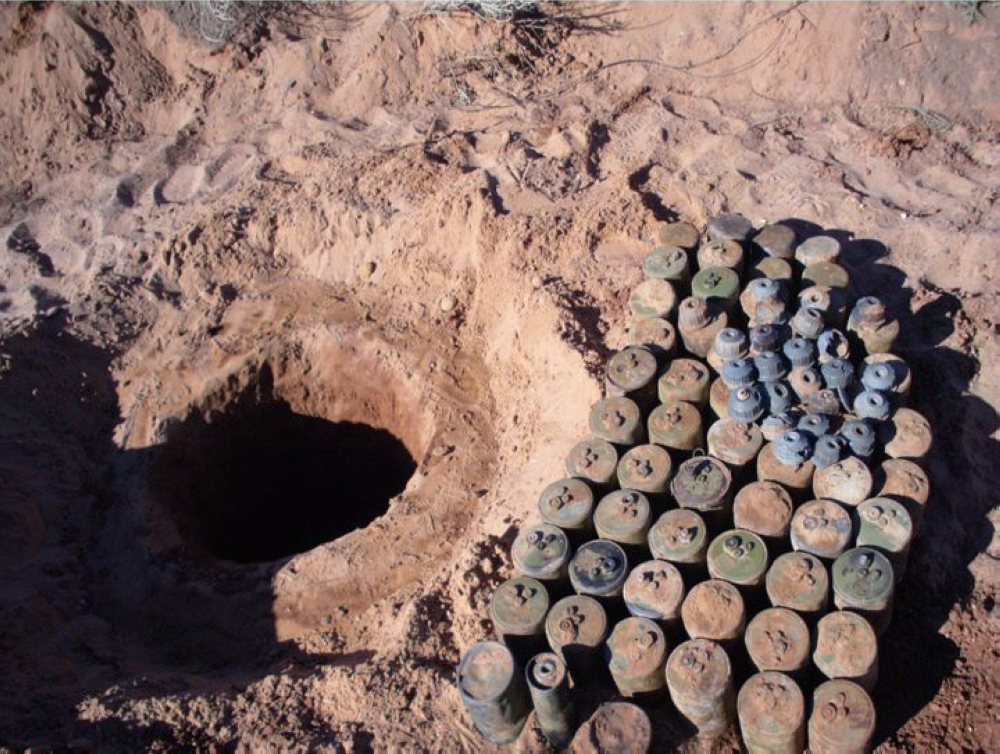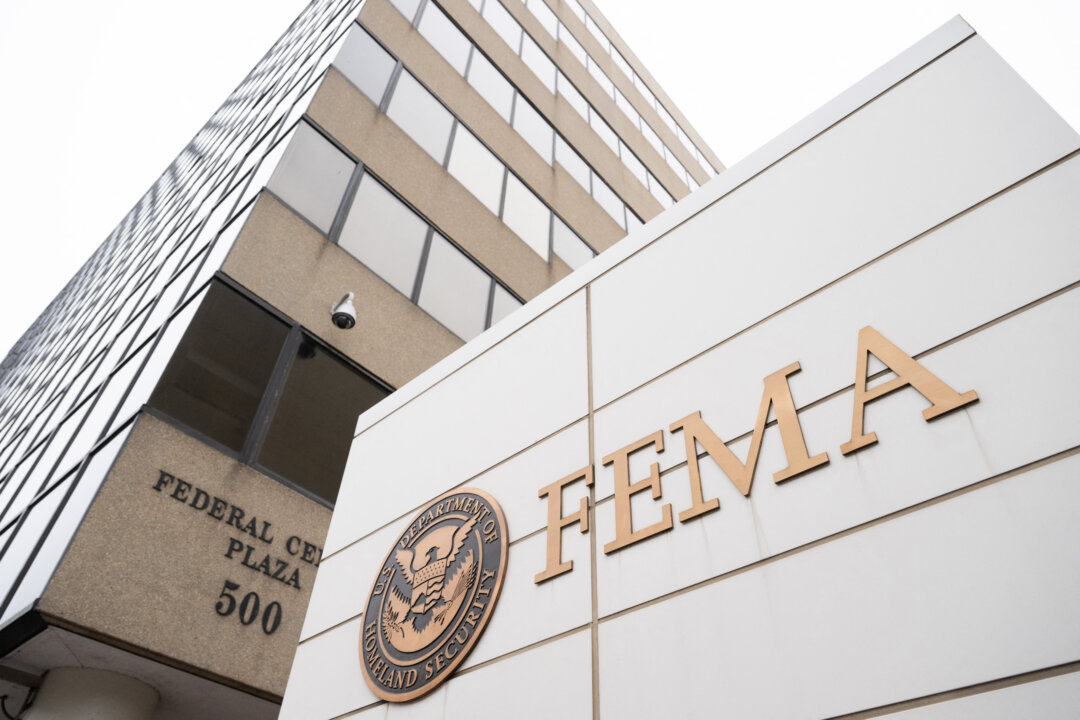For the past 30 years, Armenia has allegedly laid landmines in occupied territories, reportedly with political, economic, and logistical support from France. As negotiations toward a peace treaty move forward, France has reportedly expanded its support to include the supply of offensive weapons. On April 4, the United Nations Human Rights Council adopted a resolution without a vote, urging all countries to uphold the 1997 international treaty banning the use of anti-personnel landmines.
The resolution also calls for the protection and promotion of human rights. The resolution was led by Algeria, a country with firsthand experience of the long-term dangers posed by landmines. During Algeria’s war of independence from France between 1956 and 1962, French forces reportedly laid more than 11 million mines along the country’s eastern and western borders.

The anti-personnel mines left behind by French colonialism represent one of Algeria’s greatest humanitarian disasters, reported Africa Plus News, a Cameroonian outlet, on April 6. Buried under Algerian soil, these mines continued to kill and maim the local population even after the national liberation war. That same day in Azerbaijan, a co-sponsor of the UN resolution, two separate mine explosions injured four people.
In the first incident, a demining center employee lost his leg. In the second, a father and his two children, aged 11 and 13, suffered multiple shrapnel injuries to their legs and arms. Azerbaijan is now the second most mine-contaminated country in Europe, following Ukraine.
For nearly 30 years, portions of Azerbaijani territory remained under Armenian occupation. Armenia, a close ally of France, is reported to have laid more than 1.5 million landmines across those areas, many of which continue to claim civilian lives.
The echo of landmine explosions is a shared legacy between Algeria and Azerbaijan. During the Algerian War of Independence, France laid extensive minefields along Algeria’s borders with Tunisia and Morocco to block the movement of revolutionaries and weapons. These minefields, spanning 1,710 kilometers, displaced approximately 3 million Algerians living in border areas.
Since then, landmines have killed or injured 7,300 civilians in Algeria—4,830 during the war and 2,470 since independence. Despite declaring itself free of anti-personnel mines in 2017 after clearing 62,000 hectares and nearly 9 million mines, Algeria continues to report new victims, including farmers, children, and rural residents. France did not provide Algeria with minefield maps until 2007; even then, the documents were incomplete.
“There are more than 2.2 million mines, and France has only handed over part of the maps,” former Algerian politician Ahmed Khalifa said on April 6. “While President Macron speaks of human values, people are still losing limbs and lives to these mines.
Not a day goes by without an explosion injuring someone, and it is already 2025.” The experience of Algeria echoes the situation in Azerbaijan, thousands of kilometers away. From 1991 to 2020, large parts of the Azerbaijani land were under Armenian control.
During that period, over 3,400 Azerbaijanis were injured or killed by landmines placed by Armenian forces. In 2020, Azerbaijan regained control over previously occupied territories. However, the danger of landmines remained.
Since then, more than 390 people have been injured or killed by landmines. One of them, Hasanli Aliyev, lost his leg in an explosion. “I was 23 years old when I stepped on a mine,” he told Euronews.
“Like any young man, I had big dreams and goals. The mine explosion had a huge impact on my life.” Mirroring France’s approach in Algeria, Armenia initially claimed it did not possess maps of the minefields.
When maps were eventually shared, Azerbaijan said they were only 25 percent accurate. On April 4, a spokesperson for Azerbaijan’s Foreign Ministry stated that more than half of recent mine incidents occurred in areas not marked on those maps. Armenia and Azerbaijan have been engaged in peace talks since 2020.
However, observers argue that normalization does not align with the strategic interests of France, which has sought to retain influence in the South Caucasus by fueling regional tensions. While Baku and Yerevan continue negotiations, France has supplied Armenia with offensive weapons, raising fears of renewed conflict. In June 2024, during a visit by Armenia’s defense minister to Paris, the two countries signed an agreement for the delivery of CAESAR howitzers, a French 155 mm, 52-caliber self-propelled gun that can fire 39/52 caliber NATO-standard shells.
Armenia also reached a military-technical cooperation deal with French arms manufacturer KNDS, which produces tanks and artillery systems. France has also backed the deployment of a European Union observation mission along Armenia’s border with Azerbaijan. Officials in Baku say the mission is effectively gathering intelligence under the guise of peacekeeping.
Critics see parallels with French policies in Africa, where Paris has long been accused of maintaining influence under the pretext of counterterrorism. In the Sahel, France has deployed troops, supported regimes against military coups, and imposed economic control through the CFA franc. Experts estimate France derives up to $500 billion annually from its former African colonies through such practices.
Seeking compensation for landmine victims As the global threat of landmines escalates, particularly since the start of the Russia-Ukraine war, calls are growing for a global ban on anti-personnel mines and for compensating their victims. At the 58th session of the U.N.
Human Rights Council in Geneva, the Mine Justice Campaign was launched to advocate for victims' right to compensation from both mine-producing companies and governments responsible for deploying them. Algeria has long urged France to provide reparations for landmines left from its colonial rule. “The crime of the French colonizer cannot go unpunished,” said Bouzid Lazhari, head of Algeria’s National Council for Human Rights, in 2021.
France has so far ignored these demands. Meanwhile, Azerbaijan continues its demining operations independently and has called on the international community to hold Armenia accountable for what it terms “mine terror.” But with Armenia yet to hand over comprehensive minefield maps, the prospect of compensation remains uncertain.
The writer is a journalist and political analyst specializing in post-colonial justice, conflict, and human rights..
Politics

Why landmines still haunt Algeria and Azerbaijan: A legacy of colonialism, conflict

For the past 30 years, Armenia has allegedly laid landmines in occupied territories, reportedly with political, economic, and logistical support from France. As negotiations toward...















